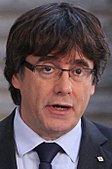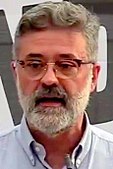| |||||||||||||||||||||||||||||||||||||||||||||||||||||||||||||||||||||||||||||||||||||||||||||||||||||||||||||||||||||||||||||||||||||||||||||
All 135 seats in the Parliament of Catalonia 68 seats needed for a majority | |||||||||||||||||||||||||||||||||||||||||||||||||||||||||||||||||||||||||||||||||||||||||||||||||||||||||||||||||||||||||||||||||||||||||||||
|---|---|---|---|---|---|---|---|---|---|---|---|---|---|---|---|---|---|---|---|---|---|---|---|---|---|---|---|---|---|---|---|---|---|---|---|---|---|---|---|---|---|---|---|---|---|---|---|---|---|---|---|---|---|---|---|---|---|---|---|---|---|---|---|---|---|---|---|---|---|---|---|---|---|---|---|---|---|---|---|---|---|---|---|---|---|---|---|---|---|---|---|---|---|---|---|---|---|---|---|---|---|---|---|---|---|---|---|---|---|---|---|---|---|---|---|---|---|---|---|---|---|---|---|---|---|---|---|---|---|---|---|---|---|---|---|---|---|---|---|---|---|
| Opinion polls | |||||||||||||||||||||||||||||||||||||||||||||||||||||||||||||||||||||||||||||||||||||||||||||||||||||||||||||||||||||||||||||||||||||||||||||
| Registered | 5,554,455 | ||||||||||||||||||||||||||||||||||||||||||||||||||||||||||||||||||||||||||||||||||||||||||||||||||||||||||||||||||||||||||||||||||||||||||||
| Turnout | 4,392,891 (79.1%) | ||||||||||||||||||||||||||||||||||||||||||||||||||||||||||||||||||||||||||||||||||||||||||||||||||||||||||||||||||||||||||||||||||||||||||||
| |||||||||||||||||||||||||||||||||||||||||||||||||||||||||||||||||||||||||||||||||||||||||||||||||||||||||||||||||||||||||||||||||||||||||||||
 Election result by constituency | |||||||||||||||||||||||||||||||||||||||||||||||||||||||||||||||||||||||||||||||||||||||||||||||||||||||||||||||||||||||||||||||||||||||||||||
| |||||||||||||||||||||||||||||||||||||||||||||||||||||||||||||||||||||||||||||||||||||||||||||||||||||||||||||||||||||||||||||||||||||||||||||
The 2017 Catalan regional election was held on Thursday 21 December 2017 to elect the 12th Parliament of the autonomous community of Catalonia. All 135 seats in the Parliament were up for election. The election was called by Spanish prime minister Mariano Rajoy after the invocation of Article 155 of the 1978 Spanish Constitution to enforce direct rule in Catalonia and the subsequent dismissal of the Catalan government under President Carles Puigdemont.[1] The three pro-Catalan independence parties won a slim majority of parliamentary seats, claiming 70 out of 135, but fell short of a majority in the popular vote by securing 47.6% of the share.
Pro-Catalan independence parties maintained their parliamentary majority at the 2015 election, although then-President Artur Mas and his Junts pel Sí (JxSí) coalition—made up primarily by Democratic Convergence of Catalonia (CDC) and Republican Left of Catalonia (ERC)—required support from the Popular Unity Candidacy (CUP) to govern. The CUP's decision to vote against Mas led to his withdrawal and to the election of Carles Puigdemont, until then mayor of Girona, as leader of a CDC–ERC coalition government.[2] Shortly thereafter, CDC was re-founded as the Catalan European Democratic Party (PDeCAT).[3]
On 27 October 2017, following the controversial referendum on 1 October, the pro-independence majority in the Catalan parliament voted in favour of a unilateral declaration of independence, just hours before the Spanish Senate voted to invoke Article 155 of the Spanish Constitution.[4][5] This allowed Prime Minister Mariano Rajoy to dismiss the Catalan government and dissolve the Catalan parliament, calling a regional election for 21 December.[6][1] With 36 seats, the main anti-independence party, Citizens (Cs), emerged as the largest in the Parliament.[7] The Socialists' Party of Catalonia (PSC) performed well below expectations and increased its seat count by one,[8] whereas Catalunya en Comú–Podem, a left-wing party in favor of self-governance for the region but not siding itself with either bloc, received 7.5% of the vote and 8 seats. Owing to the combined performance of Puigdemont's Together for Catalonia (JuntsxCat) and ERC, parties in support of independence maintained their majority in the election,[9] meaning that it was mathematically possible for a pro-independence coalition government to return to power,[10] despite their overall majority having been reduced by two seats.[11]
The biggest election loser was Rajoy's People's Party (PP), whose electoral collapse—reduced to 4.2% of the share and 4 out of 135 seats—meant it would be unable to form a parliamentary group of its own in the Catalan parliament for the first time in history.[12] The scale of PP's downfall, coupled with the success of Cs, threatened to have a political impact beyond Catalonia, with PP leaders fearing it could spell the end of the party's hegemony over the centre-right vote in Spain.[13][14]
Cite error: There are <ref group=lower-alpha> tags or {{efn}} templates on this page, but the references will not show without a {{reflist|group=lower-alpha}} template or {{notelist}} template (see the help page).
- ^ a b Cite error: The named reference
ED271017was invoked but never defined (see the help page). - ^ "Artur Mas Steps Down And Announces 11th-Hour Separatist Deal In Catalonia". The Spain Report. The Spain Report Ltd. 9 January 2016. Archived from the original on 27 January 2016. Retrieved 9 January 2016.
- ^ Barrena, Xabi (10 July 2016). "Adiós CDC, hola Partit Demòcrata Català". El Periódico de Catalunya (in Spanish). Retrieved 14 March 2017.
- ^ Cite error: The named reference
BBC271017-1was invoked but never defined (see the help page). - ^ Cite error: The named reference
BBC271017-2was invoked but never defined (see the help page). - ^ Cite error: The named reference
BBC271017-3was invoked but never defined (see the help page). - ^ "Catalonia election: full results". The Guardian. 21 December 2017. Retrieved 30 January 2020.
- ^ Romero, Juanma (21 December 2017). "El 21-D castiga al PSC con un tímido tirón y a Sánchez con un suspenso en su primer test". El Confidencial (in Spanish). Retrieved 29 December 2017.
- ^ Dowsett, Sonya; Aguado, Jesús (22 December 2017). "Spain's crisis re-ignited as Catalan separatists win vote". Reuters. Retrieved 30 January 2020.
- ^ "Catalan ex-leader demands Spain talks". BBC News. 22 December 2017. Retrieved 30 January 2020.
- ^ Jones, Sam; Burgen, Stephen (22 December 2017). "Catalan pro-independence parties keep their majority in snap poll". The Guardian. Retrieved 30 January 2020.
- ^ Meler, Isaac (22 December 2017). "Total collapse of the PP in Catalonia leaves Rajoy exposed". catalanmonitor.com. Catalan Monitor. Archived from the original on 16 November 2018. Retrieved 24 December 2017.
- ^ Buil Demur, Ana (22 December 2017). "El 21-D marca "el comienzo del fin de la hegemonía del PP en España"". euronews (in Spanish). Retrieved 29 December 2017.
- ^ Romero, Juanma (26 December 2017). "El PP exige a Rajoy cambios gruesos en el Gobierno y en el partido del PP por el 21-D". El Confidencial (in Spanish). Retrieved 29 December 2017.






